There is no denying that sleep is an essential part of life, just like food, water, or the air we breathe every day. It affects both the physical and mental well-being of individuals. Sleep deprivation can reduce a person’s ability to learn and remember, as well as decrease pain tolerance…
>>> Items to “remove” before going to bed
Moreover, human sleep disorders can lead to major disasters like Chernobyl, Three Mile Island, etc. Therefore, having a reasonable sleep schedule and ensuring the quality of sleep is extremely important.
The infographic below presents the connections between sleep and life, highlighting its significance.

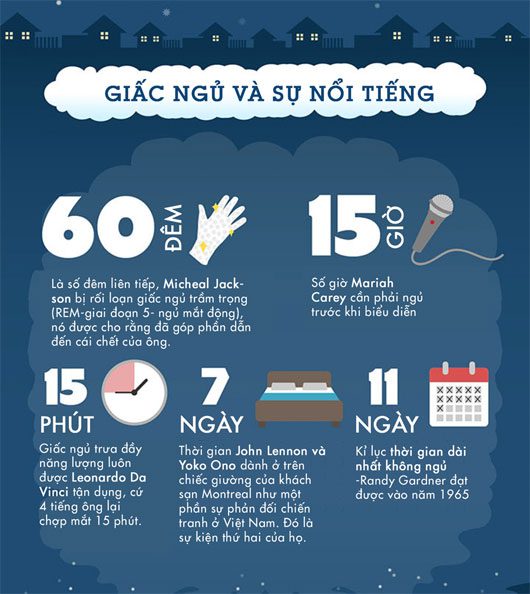
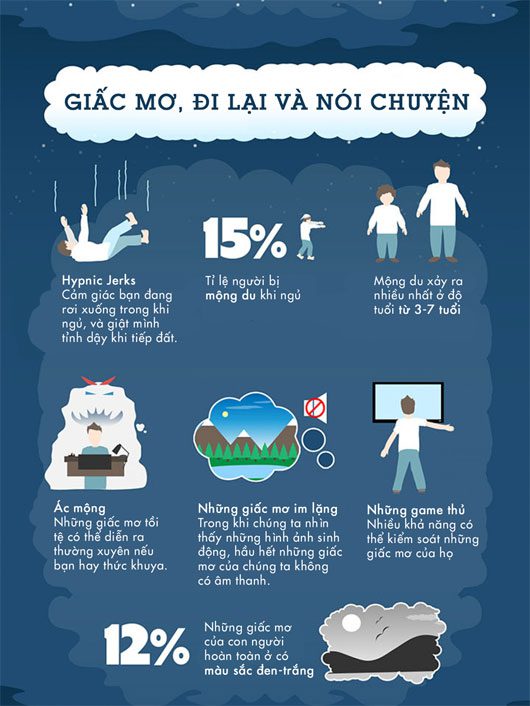

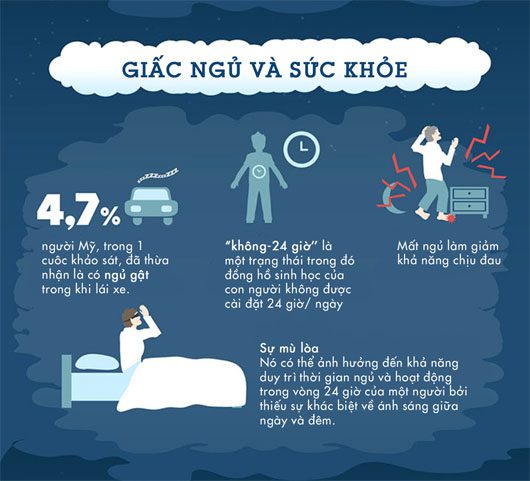
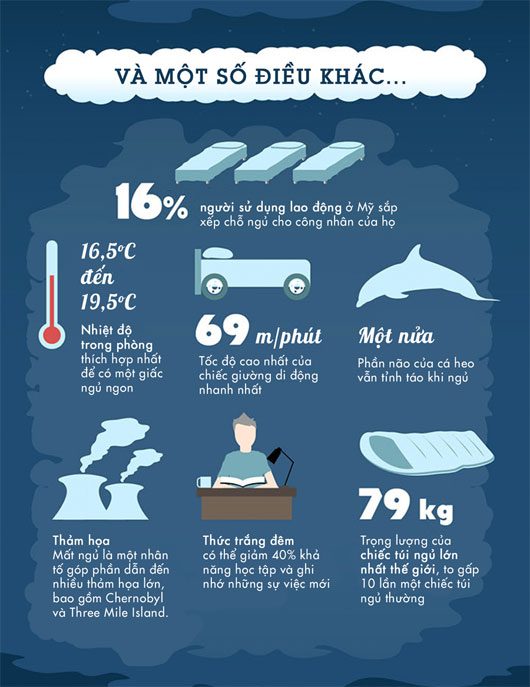
In addition to the above, we actually have quite a few misconceptions about sleep, or in other words, rumors. So what are these rumors?
Rumor 1: Not sleeping a full 8 hours means something is wrong
Reality: Some people can function well after just 4 hours of sleep, while others may need up to 10 hours. Sleep duration varies from person to person and is influenced by factors such as age and genetics. We shouldn’t generalize; the most important thing is to find the sleep duration that suits you best and stick to it.
Rumor 2: Just lie down and close your eyes to sleep
Reality: When you are experiencing insomnia, trying harder to sleep can make it even more difficult. At that moment, you are creating a negative cycle of excessive psychological stress. It’s better to get out of bed and do something to expend physical energy, allowing your body to relax, which can help you fall asleep more easily.
Rumor 3: Snoring means better sleep
Reality: Snoring and good sleep are unrelated; snoring can actually be a sleep disorder known as obstructive sleep apnea, caused by abnormal structures in the airway that lead to loud breathing at night and even temporary cessation of breathing. Those who snore should seek medical advice as soon as possible.
Rumor 4: Napping until 5 PM makes you refreshed!
Reality: Oversleeping during the day can make it difficult to fall asleep at night, leading to insomnia and disrupting your rest schedule. Therefore, whether at work or on a break, naps should only last from 30 minutes to 1 hour to allow for a brief rest. Avoid excessive daytime napping to maintain a healthy body.
Rumor 5: Eating a lot makes you sleepy, and feeling sleepy means it’s time for bed!
Reality: After a heavy meal, levels of cholecystokinin increase and orexin decreases, making us feel tired and sleepy. If you try to sleep right after eating, your stomach, intestines, liver, spleen, and other organs are still busy digesting food, which prevents them from resting and causes insufficient blood flow to the brain. It’s better to rest for at least an hour after a meal before lying down.
Rumor 6: Intense exercise will help you sleep better
Reality: Engaging in 3 to 4 aerobic or gym workouts a week can reduce depression and anxiety, leading to deeper sleep. However, exercising vigorously right before bed can overstimulate the sympathetic nervous system, making it hard to fall asleep.
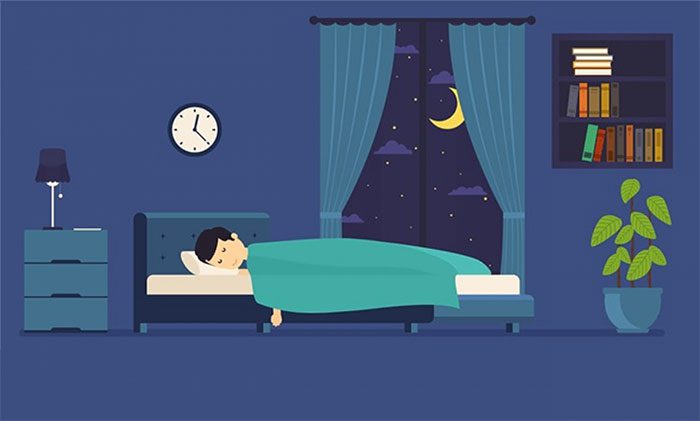
Exercising vigorously before bed can actually make it hard to fall asleep.
Rumor 7: Reading before bed makes you sleepy
Reality: Many people read before bed, which can help relax the body and mind, aiding in falling asleep. The best hypnotic book is one that you find uninteresting, but if it’s a topic you enjoy, it can instead keep your brain engaged.
Rumor 8: When you can’t sleep, drink some alcohol
Reality: Alcohol is not a solution for good sleep. Studies have found that drinking a glass of wine before bed can lead to increased consumption, potentially causing intoxication. Alcohol can degrade sleep quality, causing you to wake up at night and be unable to fall back asleep.
Rumor 9: Scrolling on my phone is my bedtime ritual
Reality: Light is a major factor affecting our body’s biological clock. The blue light emitted by electronic devices such as smartphones and tablets inhibits melatonin secretion, making you more alert the more you scroll. Electronic devices should be kept far away before bedtime; this is the correct bedtime ritual.
Rumor 10: Waking up immediately when the alarm goes off makes you energetic
Reality: Most people use alarm clocks to wake up. When the alarm rings, it jolts us awake, but getting up immediately can leave you feeling drained. The right approach is to set the alarm, turn it off, and lie down for a moment before getting up. Waking up at this time is the most comfortable, allowing you to start a new day full of energy.
Rumor 11: I didn’t sleep well last night, so I’ll catch up during the day
Reality: Sleep is not a loan; catching up on sleep during the day can rob you of nighttime sleep, making you less sleepy at night. One night of insomnia is not a big deal, and work and studies will continue as usual the next day. In the evening, you will feel sleepy again, and at that point, going to bed can help restore a healthy sleep rhythm.
Rumor 12: Choosing a soft pillow and mattress will lead to a gentle sleep
Reality: A mattress that is too soft will cause the body’s weight to lose its balanced support point, disrupting the natural physiological curvature of the spine, and can easily lead to lumbar disc herniation. The internal support system of the mattress must be firm enough to withstand the pressure of the body, while the material of the surface that comes into contact with the body should be soft enough to ensure adequate elasticity and comfort.




















































